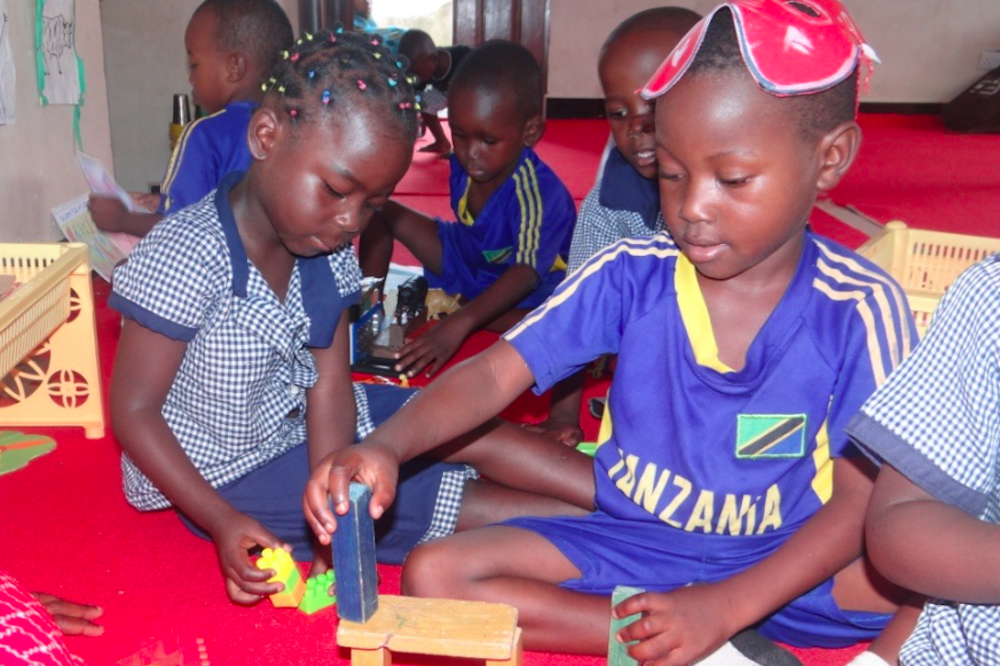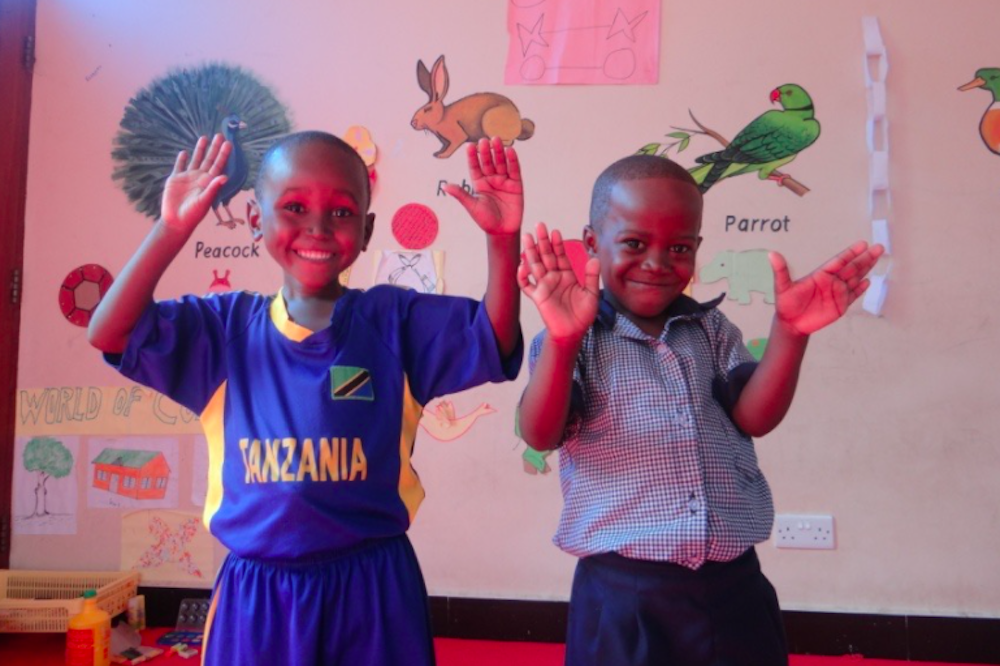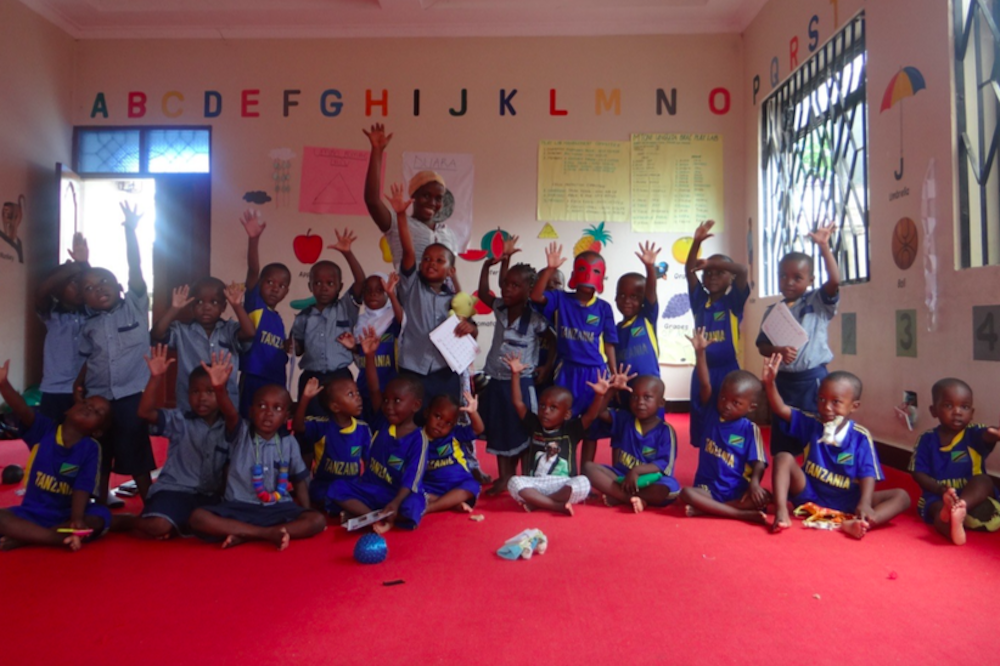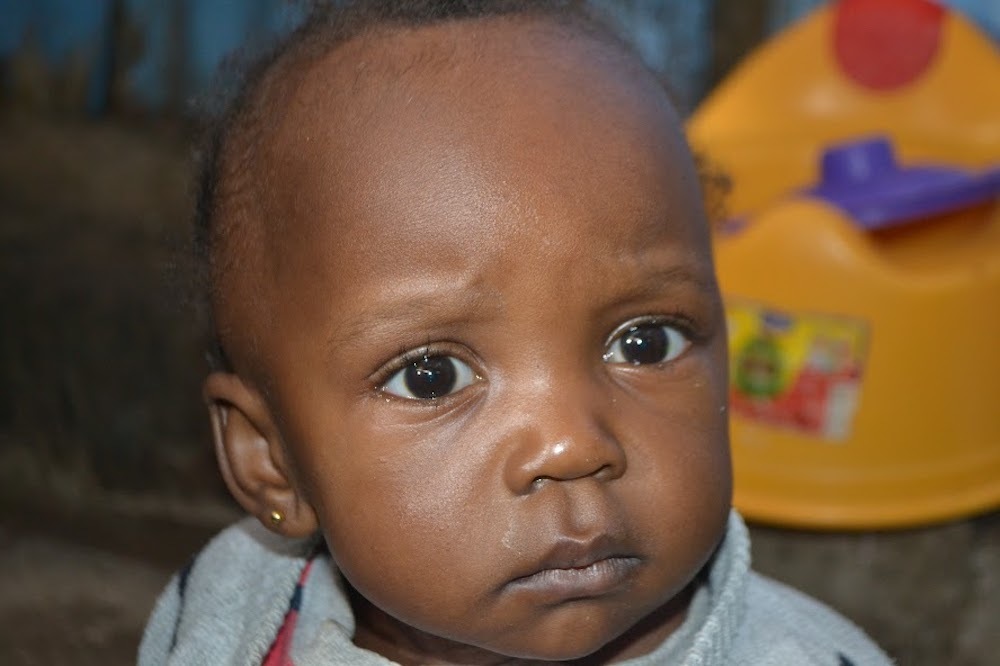“Many of the children were very clingy – now they want to stay longer in the play lab”

Child nutrition (Early years), Childcare, Early childhood development, Learning through play (Early years)
This week Theirworld is looking at caregivers who help children under the age of five to grow and develop - today we focus on the role of play and nutrition.
Every child in the world deserves to fulfil their potential. That means giving them quality care and nurturing in the crucial first few years of their life.
By the time a child reaches five years old, 90% of their brain has already developed. During that time, they need access to quality care, including the five vital areas of nutrition, health, learning, play and protection.
That’s why Theirworld’s #5for5 campaign is calling on leaders to help make early childhood development a top priority.
Caregivers – including parents and family – obviously have a key role to play. In a special series this week, Theirworld talks to caregivers about the challenges and the joys of giving children the best start in life.
Pili Yousuph, caregiver at a play lab
I am a 22-year-old caregiver for children aged three to five and I have been in this role for the past year.
The children I work with at the Mtoni Unguja Play Lab, just outside Dar es Salaam in Tanzania, are usually from poor and marginalised families who can’t otherwise afford child care services.
Childcare is usually expensive and none can be found in our neighbourhood – at least not like what we do here at the play labs, which is all about learning using play.
Many of the other child centres teach young children only serious academic studies and sitting on benches for long hours of the day. At the play labs, which are run by BRAC in Tanzania, we don’t have benches. Students are learning ABCs and 123s through song and dance and play different games throughout the day.
My role as a caregiver is mostly to ensure the children have a safe environment to learn and flourish for three hours of the day. I have to engage them and play with them to stimulate them.

Children play at Mtoni Unguja Play Lab in Tanzania (BRAC)
Many of the parents I work with have small businesses they are running to feed their families. They cannot afford multiple nutritious meals for the children.
The children look forward to the porridge and samosa we provide at the centre and maybe an extra meal that will be provided at home later during the day, mostly at dinner time when the parents are back from work.
The parents contribute to this meal although everything else is provided free of charge. It instills a sense of ownership for the programme while reinforcing the importance of nutrition for children.
The meals ensure retention an attendance while improving learning outcomes as children are energetic and active during the day.

Early childhood development
Most of the children live in leaky households with unsanitary latrines. Parents are too busy trying to find food for their children to ensure that the children are safe.
The only safe space the children have is in the play labs where they are under supervision. Once they go home, they are mostly left unattended.
We have a hand washing facility right outside the class room with running water and soap. We have a health song we sing and it emphasises the importance of hand washing.
I have seen major improvements in my children from the first time we opened the play labs to now, a year later. Many of them were very clingy and would never want to venture far from their parent.

Pili and students at the play Lab (BRAC)
Now the opposite is true. When it’s time to go home and their parents come to collect them, they cry and want to stay longer in the labs and ask their parents to come and pick them up later.
The children are more outgoing and confident. They ask questions and are very inquisitive about the world around them. They are better able to follow instructions and have good communication abilities. The children are now able to share and play with their peers with less conflict.
I usually open the centre at 7.30am and clean my classroom so that it’s ready for the children. By 8am the children start coming in and we start exercising for the next 20 minutes through games.
We have different timetables for different days. On Monday, for example, from 8.30am we have a maths game for half an hour and 25 minutes for outdoor games. Then students get a nutritious bowl of porridge from 9.25 to 10.05am.
After the break it’s story time and we all take turns narrating our favourite stories and reading story books. By 10.30 we have arts and crafts class. At 11 there is free play where children are allowed to play any game they want, be imaginative and sit by themselves doing nothing if they wanted to. They can be indoors or outdoors, if they wish.
By 11.30 am the parents come to pick up the children. I spend the next half hour cleaning up and preparing for the next day’s activities.
Many parents are still unaware of the importance of play or even the importance of hugging and showing affection to their children. Pili Yousuph, caregiver at Mtoni Unguja Play Lab
We don’t discipline the children but explain to them about good behaviour. Children are taught that mistakes are also part of learning.
Once a month we have a parents’ meeting where the BRAC staff and sometimes someone from the district welfare offices come and talk about their children, developmental milestones, nutrition, child safeguarding etc.
We also ensure that the play activities that are done in the labs are also taken and exercised at home.
Before this project, I did not understand the importance of early childhood development but I can now see clearly that what I am doing is helping the children. I wish all parents in Tanzania understood this too.
Many parents are still unaware of the importance of play or talking to their children or even the importance of hugging and showing affection to their children.
They still emphasise the importance of homework and writing and ask why their children only play, sing and dance and do art and craft. There is still a lot that needs to be done in this sector.

Mothers can visit day cares for lessons in breastfeeding and nutrition (Faith Ocharo)
Magret Githinji, mother of two
My children are eight and nine months old. I am self-employed and sell clothes. I work every day except Saturday and both of my children come to Esther’s Day Care in Nairobi, Kenya.
Before bringing them to the day care, I used to stay with the children in the house and it was hard because it meant I could not work.
When I was pregnant I visited the clinic and was taught how to breastfeed. That was the first lesson, since it’s the best food for children from birth to three years old.
I also learned how to take care of the baby while pregnant and after.
I love how the day care takes care of the children. They have become mature, creative and playful, which is good for their cognitive development. They are taught a lot like counting and singing.
It was not easy to get a day care and even trusting Esther with the children the first time I brought them here. But I got to know her and she takes good care of her children.
On Saturday I make time to play with the children – for the eldest hide and seek and singing together for the small one.
There is a big difference in my children since taking them to the day care. They have learned to share toys, sing and relate well to others.
Also in The Caregivers series
More news

MyBestStart programme gives young girls the education they deserve
